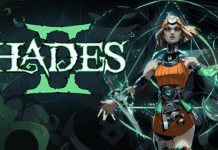The Supreme Court recently heard oral argument in Ysleta Del Sur Pueblo v. Texas, a case about the restrictions federal law places on two Texas tribes’ ability to operate gaming enterprises. When Congress recognized the two tribes, it “prohibited” gaming on their reservations to the same extent Texas law “prohibits” gaming. Texas argues this statute is straightforward—if a form of gaming is illegal off the reservation, it is illegal on the reservation.
The tribes make a more nuanced argument. They say that Congress wrote the law with California v. Cabazon Band of Mission Indians, a case that revolutionized the tribal gaming industry, in mind. In Cabazon, the Supreme Court held that certain states could apply their laws prohibiting gaming to tribal lands, but could not regulate gaming activities that were not wholly banned under state law. Thus, because Texas does not prohibit bingo altogether, but instead merely restricts it to charitable purposes, the tribes argue they can operate commercial bingo enterprises free from Texas’s regulations.
To most observers, this case seemed unlikely to make a broad impact on tribal gaming. But some justices may have other ideas. Justice Gorsuch, often seen as a supporter of tribes, floated the possibility of overruling Cabazon. (To which an attorney for the federal government responded: “Wow!”) The Court is unlikely to overrule Cabazon—for starters, no party in this case asked for that outcome—but given that Cabazon is the foundation of modern tribal gaming and has even broader implications in the field of Indian law, any doubt as to its vitality will raise eyebrows.
The justices also questioned the government’s attorney about the “Indian canon of construction” which requires courts to interpret statutes affecting tribes in favor of tribal interests where possible. Justice Alito said that textualists—jurists who rely primarily on the text of a law in resolving cases—“have some questions” about interpretive canons, while Justice Kagan noted she might be in favor of “toss[ing] them all out[,]” including the Indian canon. Any weakening of the Indian canon would have major repercussions for tribal nations.
Finally, the Court seemed interested in how bingo is defined for tribal gaming. Electronic bingo devices at tribal casinos sometimes resemble Vegas-style slot machines more than traditional bingo, but federal law carefully delineates the boundaries between bingo and more heavily regulated gaming devices. Justice Alito called the bingo machines at issue in this case “something different” than one might expect “people to be playing in church or at the Elks” (and he went on about a “Dingo” hypothetical example to test the advocates). Other justices expressed interest in classifying these machines under federal law. While some bingo devices have generated litigation, the Supreme Court has never considered a bingo classification dispute. This case does not cleanly present a bingo question, but the Court may nevertheless weigh in on the law of bingo classification in its opinion.
Crowe & Dunlevy’s attorneys will be keeping a close eye on this surprising case and are available to discuss how it could affect your tribal nation or business interests. We expect a decision to issue in the next few months.
See more »
DISCLAIMER: Because of the generality of this update, the information provided herein may not be applicable in all situations and should not be acted upon without specific legal advice based on particular situations.
© Crowe & Dunlevy | Attorney Advertising
Refine your interests »
This website uses cookies to improve user experience, track anonymous site usage, store authorization tokens and permit sharing on social media networks. By continuing to browse this website you accept the use of cookies. Click here to read more about how we use cookies.
Back to Top
Explore 2021 Readers’ Choice Awards
Copyright © JD Supra, LLC










